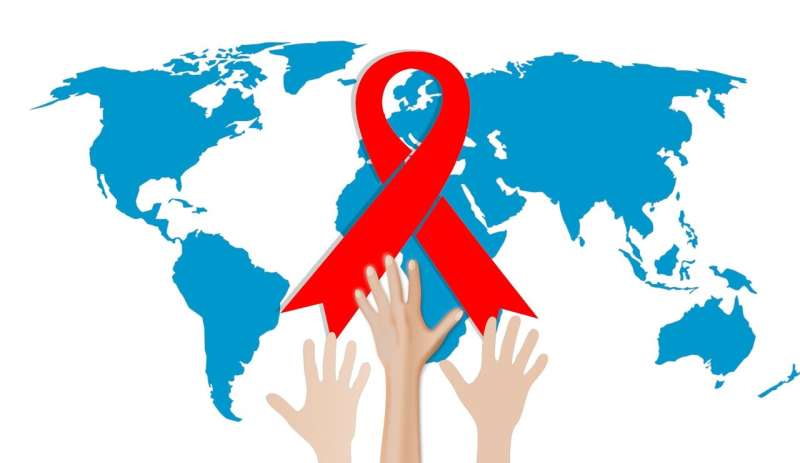New tool launched to help provide person-centred care for people living with HIV

Researchers from King's College London and the British HIV Association (BHIVA), with input from HIV community members of the UK Community Advisory Board (UK-CAB), have launched a tool to support people with HIV and help healthcare professionals understand where to focus their care.
POSITIVE Outcomes is a simple tool which can quickly identify what matters to people living with HIV, and so enable care that is centered on the individual. It is the result of a five-year collaboration between researchers from the Florence Nightingale Faculty of Nursing, Midwifery & Palliative Care at King's College London, BHIVA and the UK-CAB.
Routine use of the tool will have numerous benefits for both people living with HIV and the healthcare professionals delivering their care. For people living with HIV, the intended benefits include enhanced communication, assessment, empowerment, and decision-making. For clinicians, the tool will improve identification of 'missed' concerns, offer better referral, inform treatment decisions and improve monitoring of change over time. It will also help to inform service design and delivery, justification of spending and improved care provision.
Professor Richard Harding, Vice Dean (International) of the Florence Nightingale Faculty of Nursing, Midwifery & Palliative Care and Director of the Cicely Saunders Institute of Palliative Care, Policy & Rehabilitation, said that "despite HIV being a manageable, long-term health condition for those who can access modern treatments, people living with HIV continue to experience burdensome physical, psychological, social and spiritual problems. The POSITIVE Outcomes tool has been developed in collaboration with healthcare professionals and people living with HIV to ensure that each individual's needs are identified in the most efficient way, so that their care can address those needs."
Despite today's highly effective medical management of HIV, research shows that people living with the condition have worse health-related quality of life than the general population and experience symptoms and concerns that span many areas, including physical, cognitive, psychological, social, welfare and information.
BHIVA Chair, Dr. Laura Waters, said that they "are delighted to be launching the POSITIVE Outcomes tool. Testing has demonstrated that it is clear and understandable, and that it measures what matters most to people living with HIV themselves. This means it will help us as clinicians to offer tailored treatment to each patient on an individual basis. We are confident that it will be of great benefit to both people with HIV and healthcare practitioners."
Alex Sparrowhawk, Chair of the UK-CAB, said that "a diverse group of members from the UK-CAB contributed to the early stages of the development of the POSITIVE Outcomes tool to identify the outcomes that really matter to us as people living with HIV. We also looked at methodology and language, recognizing that time with clinicians and other medical professionals is limited, making it essential that each individual's needs can be identified quickly and efficiently."
The research group completed three phases of study which informed the tool's development. In the first stage, they identified priority outcomes for people living with HIV and explored views on introducing patient-centered outcomes measures (PROMs) into routine care. A PROM is a brief list of the things that matter most to people living with a health condition, which enables the person to score what is bothering them, and thus to quickly inform healthcare professionals where they should focus. This initial stage, published in HIV Medicine, found that study participants strongly supported the idea of a PROM for use in routine care.
In the second phase, published in Health and Quality of Life Outcomes, a group comprised of researchers, healthcare professionals and people living with HIV came together to develop a PROM specifically for people living with HIV in the UK and Ireland, spanning the symptoms and concerns highlighted by the first-stage data.
The third stage of the study focused on testing the tool to ensure that it measures what it should, and that it does so accurately. 1,392 people across five European countries took part in the final phase, published in HIV Medicine, completing the POSITIVE Outcomes at least twice.
More information: Positive outcomes tool: onlinelibrary.wiley.com/action … pplement?doi=10.1111%2Fhiv.13224&file=hiv13224-sup-0001-Supinfo.pdf
K Bristowe et al, Towards person‐centred care for people living with HIV : what core outcomes matter, and how might we assess them? A cross‐national multi‐centre qualitative study with key stakeholders, HIV Medicine (2019). DOI: 10.1111/hiv.12758
K. Bristowe et al, The development and cognitive testing of the positive outcomes HIV PROM: a brief novel patient-reported outcome measure for adults living with HIV, Health and Quality of Life Outcomes (2020). DOI: 10.1186/s12955-020-01462-5
Richard Harding et al, Positive Outcomes: Validity, reliability and responsiveness of a novel person‐centred outcome measure for people with HIV, HIV Medicine (2022). DOI: 10.1111/hiv.13224




















